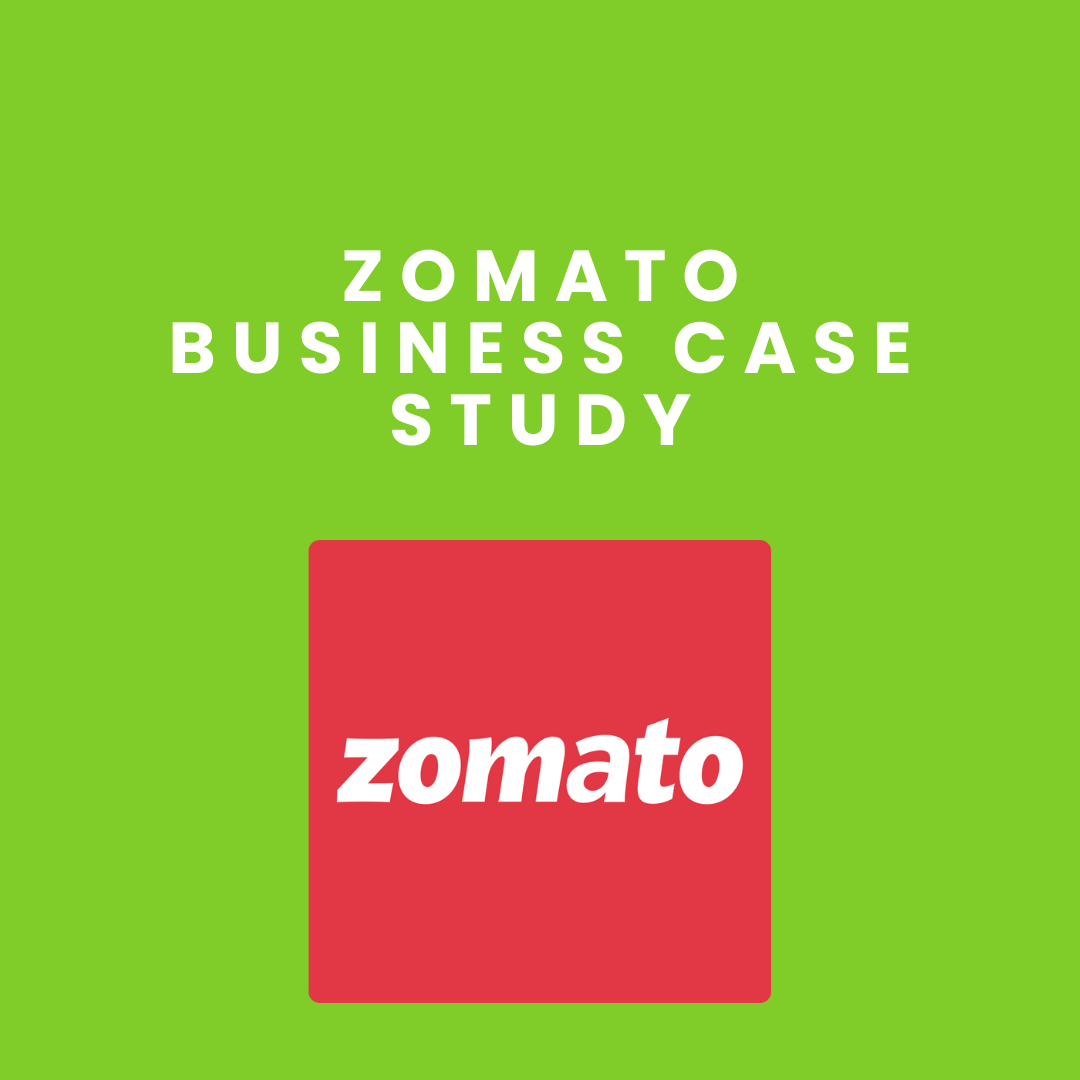Introduction
In this Zomato business case study, we will explore the success story of Zomato, India’s leading food delivery and restaurant discovery platform. Zomato has revolutionized the way people discover, order, and enjoy food by providing a seamless and convenient online platform.
Join us as we delve into the journey, strategies, and key success factors that have propelled Zomato to become a dominant player in the food tech industry. Do check out Top 100 Startups Till 2023 in India for more such case studies.
1. Origins and Evolution
Zomato was founded in 2008 by Deepinder Goyal and Pankaj Chaddah as an online platform for restaurant discovery and reviews. Originally known as “Foodiebay,” the platform quickly gained popularity and expanded its services to include online food ordering and delivery.
2. Wide Reach and Extensive Partner Network
Zomato has established a wide reach and an extensive partner network, allowing users to access a vast selection of restaurants and cuisines. The platform operates in numerous cities across India and has expanded internationally, making it a one-stop destination for food enthusiasts.
3. Seamless User Experience
Zomato provides a seamless user experience through its user-friendly website and mobile app. Users can easily search for restaurants based on location, cuisine, or specific dishes. The platform also offers comprehensive information about restaurants, including menus, reviews, ratings, and photos.
4. Delivery and Order Tracking
Zomato has successfully ventured into the food delivery space, offering a reliable and efficient delivery service. Users can place food orders through the app and track their delivery in real-time. Zomato’s delivery fleet ensures timely and hassle-free delivery, enhancing customer satisfaction.
5. Restaurant Partnerships and Promotions
Zomato has built strong partnerships with restaurants, enabling them to showcase their menus, offers, and promotions on the platform. Restaurants benefit from increased visibility and customer reach, while users enjoy exclusive deals and discounts, creating a win-win situation for both parties.
6. Diversification and Innovation
Zomato has diversified its services and embraced innovative technologies to stay ahead in the competitive food tech industry. The platform introduced features like Zomato Gold, a membership program offering complimentary dishes and discounts at partner restaurants. Zomato has also explored cloud kitchens and ventured into the grocery delivery segment.
10 Facts about FoodTech Startups in India
The FoodTech sector in India has witnessed tremendous growth and innovation, transforming the way people order, discover, and enjoy food. Here are 10 fascinating facts about FoodTech startups in India:
- Online Food Delivery: FoodTech startups have disrupted the traditional food delivery model by offering online platforms and apps for ordering food. These platforms connect users with a wide range of restaurants and cuisines, providing convenience and choice.
- Restaurant Discovery and Reviews: FoodTech startups provide comprehensive restaurant discovery platforms that enable users to explore and choose from a diverse selection of eateries. Users can access information about menus, prices, reviews, and ratings to make informed dining decisions.
- Cloud Kitchens: FoodTech startups have embraced the concept of cloud kitchens, also known as virtual kitchens or ghost kitchens. These kitchens operate without a physical restaurant space, focusing solely on food preparation for delivery. Cloud kitchens enable cost-effective and efficient food production.
- Technology-driven Delivery: FoodTech startups leverage technology for efficient and seamless food delivery. They utilize GPS tracking, real-time order updates, and delivery optimization algorithms to ensure timely and reliable delivery to customers’ doorsteps.
- Contactless Delivery: In response to the COVID-19 pandemic, FoodTech startups have introduced contactless delivery options. Users can opt for cashless payments, leave delivery instructions, and maintain minimal physical contact during the delivery process.
- Special Dietary Preferences: FoodTech platforms cater to various dietary preferences and requirements. They offer options for vegetarian, vegan, gluten-free, and other specific dietary needs, ensuring a wide range of choices for individuals with diverse preferences.
- Food Subscription Services: FoodTech startups provide food subscription services, allowing users to subscribe to meal plans or receive regular food deliveries. These services offer convenience and variety, making it easier for individuals to access nutritious meals.
- Hyperlocal Food Delivery: FoodTech startups have introduced hyperlocal delivery models, focusing on quick and efficient delivery within localized areas. By partnering with nearby restaurants and leveraging their delivery fleet, they ensure faster delivery to customers in specific regions.
- Food Waste Reduction: FoodTech startups actively work towards reducing food waste through innovative solutions. Some platforms collaborate with restaurants to repurpose surplus food or offer discounted meals near closing time to minimize food wastage.
- Virtual Dining Experiences: FoodTech startups have explored virtual dining experiences, providing users with the opportunity to participate in virtual cooking classes, food events, and interactive food experiences. These platforms bring the joy of dining and culinary exploration into the digital realm.
These facts highlight the transformative impact of FoodTech startups on the food industry in India. By leveraging technology, innovation, and customer-centric approaches, these startups have enhanced convenience, choice, and accessibility in the food ecosystem.
Conclusion
Zomato’s journey from a restaurant discovery platform to a comprehensive food tech company reflects its innovative spirit, customer-centric approach, and adaptability to changing market dynamics.
By leveraging technology, partnerships, and a focus on user experience, Zomato has disrupted the food industry, making it easier for people to explore new culinary experiences and enjoy food at their convenience.
Frequently Asked Questions (FAQs)
Question:- How does Zomato ensure the quality of its food delivery service?
Zomato maintains strict quality standards and works closely with its restaurant partners to ensure that food is prepared and delivered in a hygienic and timely manner. User reviews and ratings also play a role in monitoring and maintaining service quality.
Question:- Can I order from multiple restaurants through Zomato?
Yes, Zomato allows users to order from multiple restaurants in a single order, catering to diverse culinary preferences and group orders.
Question:- Does Zomato offer customer support for order-related queries?
Yes, Zomato provides customer support through its app and website. Users can contact customer support for assistance with order tracking, refunds, or any other queries they may have.
Question:- Is Zomato available in international markets?
Yes, Zomato operates in several international markets, including countries in Asia, Europe, the Middle East, and North America. The platform provides localized services to cater to the specific needs of each market.
Question:-Does Zomato offer contactless delivery options?
Yes, Zomato has introduced contactless delivery options to ensure the safety and well-being of customers and delivery partners. Users can opt for contactless delivery and choose to pay online to minimize physical contact.









